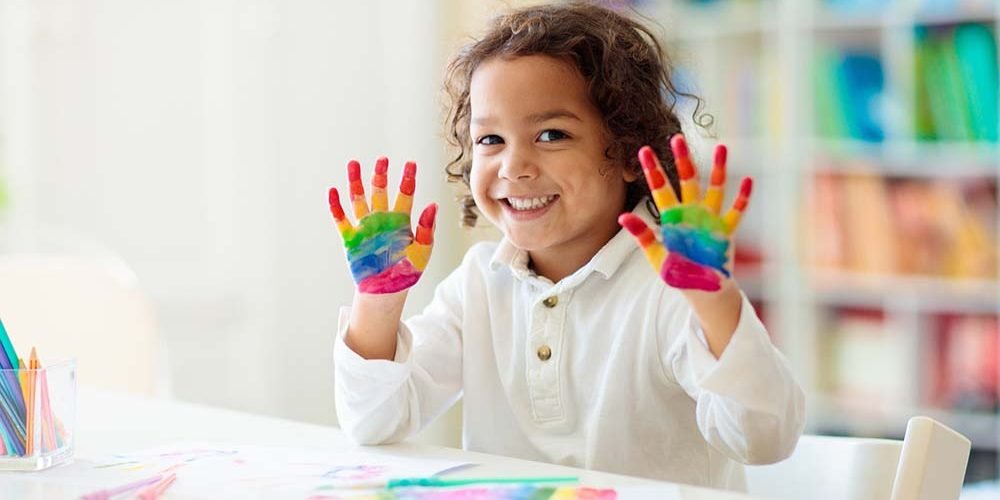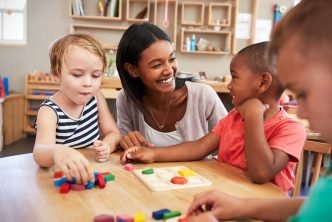Kindergarten readiness is a crucial milestone in a child’s life. It’s the point where they transition from their early years into formal education. This stage lays the foundation for future learning and success. It’s not just about knowing the alphabet or counting to ten but about being socially, emotionally, and cognitively prepared to thrive in a structured educational environment.
This is where early learning centers come into play. They provide a nurturing environment where children can develop these essential skills. They offer structured learning experiences, play-based activities, and social interaction opportunities designed to prepare children for the demands of kindergarten.
For instance, centers like Little Scribblers Belmore focus on nurturing these skills through a variety of engaging activities. But it’s not just about academics. Children should also be able to communicate their needs, interact positively with peers, and manage their emotions.
Table of Contents
The Role Of Early Learning Centers In Promoting Kindergarten Readiness
Early learning centers play a pivotal role in preparing children for kindergarten. They offer an environment that fosters development in areas crucial for school readiness.
Fostering Academic Skills
Early learning centers are instrumental in introducing children to the world of academics. They use age-appropriate activities to teach children about letters, numbers, shapes, and colors.
For instance, children might learn about numbers through counting games or recognize shapes through sorting activities. These experiences help children develop a basic understanding of literacy and numeracy, which are fundamental for their future learning.
Enhancing Cognitive Skills
Cognitive skills involve thinking, learning, problem-solving, and memory. Early learning centers provide a variety of activities that challenge children’s thinking and stimulate their curiosity.
For example, a simple activity like building a tower with blocks can enhance a child’s problem-solving skills as they figure out how to balance the blocks. Similarly, memory games can improve a child’s recall ability. These experiences contribute to the development of strong cognitive skills.
Promoting Social And Emotional Development
Early learning centers are often a child’s first social environment outside of their family. They interact with peers and learn important social skills like sharing, taking turns, and resolving conflicts. For example, during group play, children learn to cooperate with others and understand different perspectives.
On the emotional front, early learning centers help children recognize and manage their emotions. Activities that involve role-play, for instance, can help children understand different emotions and how to respond to them.
Encouraging Self-Regulation
Self-regulation refers to the capacity to control one’s own emotions and actions in response to varying circumstances. In early learning centers, children learn to control their impulses, wait for their turn, and follow rules. This is often taught through games that require children to listen to instructions and control their actions. For example, in a game of ‘Simon Says,’ children learn to control their actions and only respond when the instruction begins with ‘Simon Says.’
Providing Play-Based Learning
Play is a natural way for children to learn. It allows them to explore, express, and be creative. Early learning centers incorporate play into their curriculum to make learning fun and engaging.
Play can be categorized into two forms: guided and free-form. Guided play, also known as structured play, is directed by an adult with a particular learning objective in mind. An example of this could be a teacher creating a mock store to impart knowledge about currency to children.
Conversely, free-form or unstructured play is primarily child-driven and doesn’t have a fixed agenda. An example could be children engaging in open play in a playground, which allows them to exercise their creativity and enhance their physical abilities.
Early learning centers play a crucial role in promoting kindergarten readiness. They provide a supportive and stimulating environment where children can develop the necessary skills and abilities to thrive in kindergarten and beyond.

Choosing The Right Early Learning Center
Selecting the right early learning center is a significant decision for parents. It’s important to find a place that aligns with your child’s needs and your family’s values.
- Consider The Curriculum And Teaching Philosophy: Different centers may have different approaches to early childhood education. Some may follow a play-based curriculum, while others might have a more academic focus.
- Evaluate Staff Qualifications And Teacher-To-Student Ratio: The qualifications of the staff and the teacher-to-student ratio are important factors to consider. Highly qualified staff can provide a richer learning experience for your child. A low teacher-to-student ratio ensures that your child receives adequate attention and care.
- Assess The Environment And Facilities: The physical environment of the center plays a crucial role in your child’s learning and development. Look for a center that is clean, safe, and stimulating. The center should have a variety of learning materials and play equipment to support children’s learning and physical development.
- Importance Of Parent Involvement And Communication: Centers that encourage parent involvement and maintain open communication can be more effective in supporting your child’s development. Look for a center that provides regular updates about your child’s progress and activities.
Choosing the right early learning center involves careful consideration of various factors. It’s about finding a place where your child will feel safe, engaged, and happy and where they can develop the skills necessary for kindergarten readiness.
Conclusion
Remember, the transition to kindergarten is a big step, not just for your child but for you as well. With the right preparation and the right early learning center, you can ensure that your child is ready to take this step with confidence.





